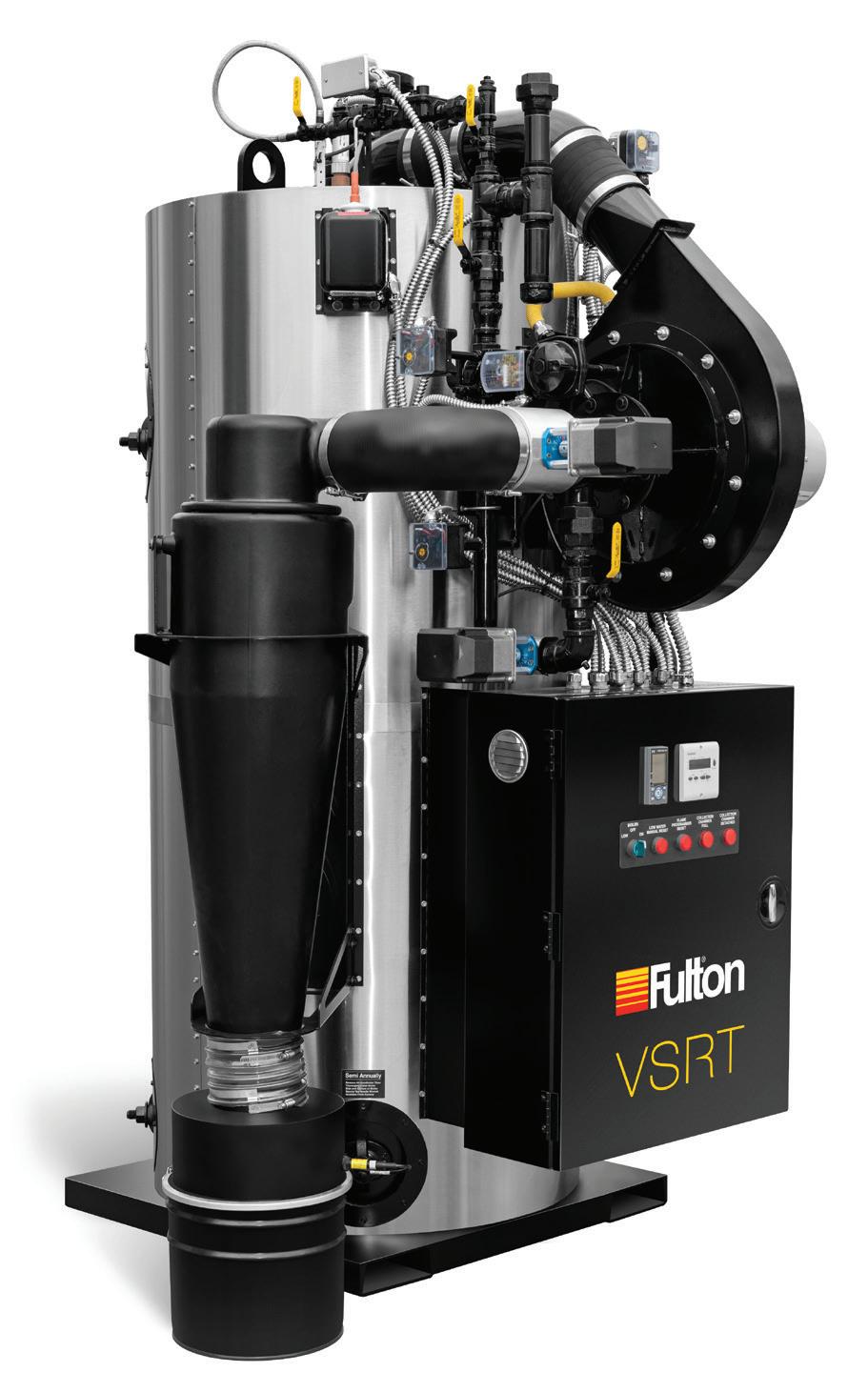
3 minute read
Streamlining Food Production: The Role of Processing Equipment in the Modern Food Industry
In the bustling world of food production, efficiency, reliability, and quality are paramount. Behind every delicious meal, snack, or beverage lies a sophisticated network of processing equipment meticulously designed to transform raw ingredients into finished products. From steam boilers to water treatment systems, each component plays a crucial role in ensuring the smooth operation of food processing facilities.
From steam boilers to water treatment systems, each component plays a crucial role in ensuring the smooth operation of food processing facilities. We delve into the significance of processing equipment in the food industry, exploring key technologies such as fuel-fired and electric steam boilers, ancillary plant systems, and engineered solutions for water treatment.
FUEL-FIRED AND ELECTRIC STEAM BOILERS:
Powering the Heart of Food Production
Steam boilers serve as the beating heart of many food processing operations, providing the energy necessary for cooking, sterilization, and heating processes. Fuel-fired steam boilers utilise natural gas, propane, or diesel to generate steam, offering robust performance and high efficiency. These boilers are prized for their versatility, capable of delivering precise temperature control essential for cooking, pasteurisation, and other thermal processes in food production.
On the other hand, electric steam boilers have gained traction due to their cleanliness, ease of installation, and minimal environmental impact. By harnessing electricity as a power source, electric boilers eliminate the need for on-site fuel storage and combustion, reducing emissions and ensuring compliance with stringent environmental regulations. Moreover, electric steam boilers excel in applications requiring rapid start-up times and precise temperature modulation, making them ideal for small-scale food processing operations and niche production lines.
ANCILLARY PLANT SYSTEMS:
Enhancing Efficiency and Productivity
Beyond steam generation, ancillary plant systems play a pivotal role in optimising the efficiency and productivity of food processing facilities. These systems encompass a wide range of equipment, including heat exchangers, pumps, valves, and piping networks, designed to transport fluids, regulate temperatures, and facilitate material handling throughout the production process.
Heat exchangers, for instance, play a critical role in energy recovery and process optimisation by transferring heat between different fluid streams. By harnessing the heat generated during pasteurisation or cooking processes, heat exchangers can preheat incoming product streams, reducing energy consumption and enhancing overall efficiency. Similarly, pumps and valves regulate the flow of liquids and gases, ensuring precise control over process variables and minimising product waste.
ENGINEERED SYSTEMS FOR WATER TREATMENT:
Safeguarding Quality and Compliance
Water serves as a ubiquitous ingredient and processing medium in the food industry, necessitating stringent quality standards and regulatory compliance. Engineered systems for water treatment play a pivotal role in safeguarding product quality, mitigating contamination risks, and ensuring compliance with food safety regulations.












